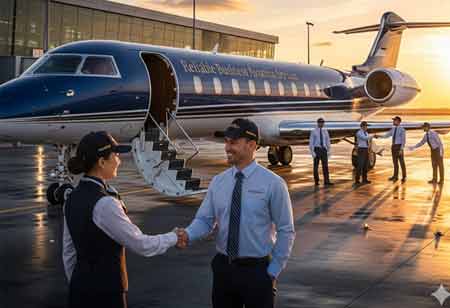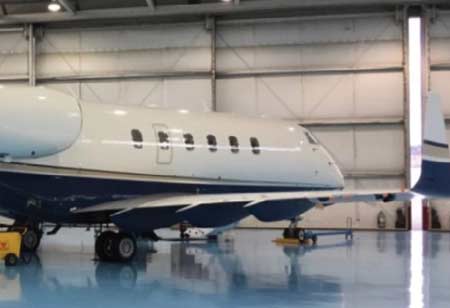Business aviation is a vital tool for corporate mobility, offering tailored air travel to executives, entrepreneurs, and professionals dealing with strict schedules. Reliability is a critical element in providing air-transport solutions, as it enhances the utility of these services. In today's globalized world, the never-fail dependability of business aviation services has become an expectation, facilitating productivity, responsiveness, and flexibility. Businesses consider the ability to meet these qualities consistently as the most influential yardstick for evaluating their aviation partners.
Reliable service in business aviation involves more than just aircraft availability; it involves safety, planning, customer support, and ground coordination. Executive travel often involves last-minute changes to the itinerary, and service providers must demonstrate their mettle against high-order complexities without compromising standards. This includes aircraft maintenance, crew availability, schedule adaptation, and airport logistics management. The golden measure of reliability is a smooth delivery of services that allows passengers to focus on their business objectives without interruptions.
Operational Excellence and Flight Readiness
Everything else that follows in the structural establishment of a reliable business aviation service is what is so focused on operational excellence. It is initiated from the fleet management's approach, boasting top-priority preventive maintenance and regulatory compliance. To be airworthy and to minimize the risk of unscheduled delays, all aircraft have to be maintained under the confines of strict aviation authority guidelines. There is a need for crew readiness as well. Both pilots and cabin crew are required to meet ongoing training standards across operating scenarios. Their ability to competently execute flights while understanding, beforehand, clients' expectations hugely contributes to the reliability of every travel.
Planning is highly critical in flight. Only a reliable company ever does detailed planning using advanced planning systems, factoring in the optimum routing for the given date, airspace restrictions, and fuel-economical track. This, in fact, allows timely departures and arrivals that are necessary for essential business travelers working on tight schedules. On the other hand, the utilization of effective planning goes well in calming down unexpected occurrences, such as changes in weather or slot constraints in high-traffic airports. Hence, with the proper management of these factors, travelers' experiences will be seamless, providing the required support for business continuity and sparing undesirable lost time.
Client-Centric Services and Customization
This is one huge table, and one of the most overriding requirements for any business aviation that should strive to ensure personalized, client-centric services is the customization it offers to customers. Business aviation goes through many a pantheon of requirements. Still, all the while, it bends back to flexibility: from private departure times and in-flight catering to connected postflight logistics. The service-provider reliability dimension of being attentive and responsive to these is an essential criterion applied for the formation of service within the ground transportation, catering, meeting halls, and other amenities that impeccably line up with the traveler's schedule and expectations.
In the aviation industry, customization is achieved through good communication between clients and service providers. Open communication ensures clients receive up-to-date updates on scheduling, aircraft status, and ground coordination, giving travelers personalized details. Trusted aviation providers can quickly adjust plans without compromising safety or quality of service, building trust over time. As businesses expand globally, service quality should remain constant, regardless of location. To achieve this, service providers should follow safe operations, standardized processes, and communication protocols with local authorities and airports. This encourages a culture of continuity and reliability, ensuring a reliable and efficient service experience for travelers. This approach fosters trust and partnership rather than transactional relations.
Safety Standards and Strategic Growth Alignment
In the field of aviation, safety is a fundamental requirement—it is not a matter of choice. The reliability and safety axis being intertwined, bacon for any aviation company is to imbibe a culture of safety that is reflected in every operation. Starting from preflight ground checks to postflight reporting, everything is done as per safety standards, without any excuse for noncompliance with best practices. Through independent audits, certification procedures, and in-house oversight, these safety standards continue to be maintained. This setup, in turn, instills confidence in the client that their well-being equally competes for preference alongside operational efficacy.
For any organization planning to fulfill its growth objectives, business aviation presents an array of beneficial options in terms of a flexible fleet, high-caliber scheduling services, and a broad geographical reach. Providers that offer the ability to support these kinds of operations without jeopardizing reliability are assets to agile decision-making and business development. Further elevating consistency and efficiency, technology comes in through the use of digital platforms for booking and flight tracking, adding to transparency and reducing the administrative burden. Hence, it is poised to drive a trustworthy and data-driven service that, if appropriately crafted, will dynamically evolve in line with client expectations in a truly efficient and effective business model.









